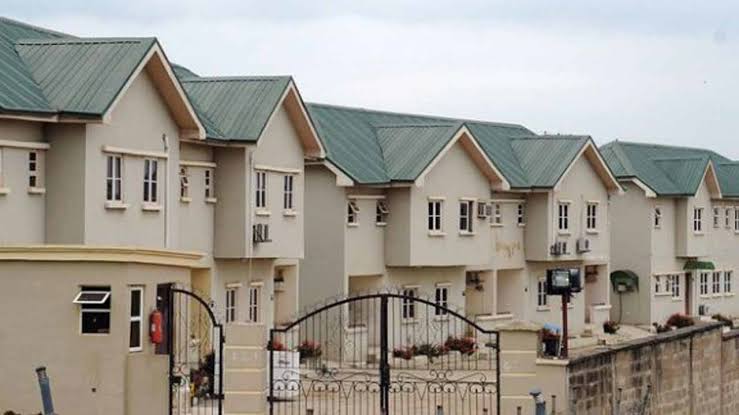We welcome monthly payment of rent in FCT
The bill by the Senate to regulate rent payments in the Federal Capital Territory (FCT), specifically to stop yearly advance payment of rents, thereby compelling house owners to collect rent monthly is indeed a welcome development. The bill titled, ‘Bill for an Act to Regulate the mode of payment of rent on Residential Apartments, Office […]

FILE PHOTO
The bill by the Senate to regulate rent payments in the Federal Capital Territory (FCT), specifically to stop yearly advance payment of rents, thereby compelling house owners to collect rent monthly is indeed a welcome development.
The bill titled, ‘Bill for an Act to Regulate the mode of payment of rent on Residential Apartments, Office Spaces, etc in the FCT and for other matters connected therewith, 2022,’ was read for the second time during plenary penultimate Tuesday.
Sponsor of the bill, Smart Adeyemi, leading the debate, said: “Our economy has not fared better in supporting the advance payment. This tenancy system has continuously impoverished Nigerians. Many residents of the FCT are finding it difficult to cope with huge rent payments, therefore, legislation must be made towards a better society. This bill seeks to reduce advance payment for new tenants to three months, and seeks to protect low-income earners from any form of oppression.”
Only Senator Chimaroke Nnamani (PDP, Enugu) opposed the bill, saying rents are determined by market forces, like the cost of acquiring land and building materials. His position, however, did not stop the passage of the bill for second reading.
We welcome this bill and urge the lawmakers to see it to a logical conclusion just as we urge the president to assent to it when it is transmitted to him. Indeed, one of the biggest challenges faced by residents of the FCT is housing as, apart from the fact that the costs are astronomical, conditions attached to renting one are stringent. While studio apartments, known as self-contained, cost an average of N250,000 in satellite towns, the same goes for about N550,000 within the city centre. And despite these huge costs, tenants are often asked to pay for one year or two years before they can occupy the buildings. This has led to several unoccupied buildings as many residents in the FCT are unable to afford the cost.
This development has led to the proliferation of slums as residents, especially the low-income earners, seek alternative solutions to their housing problems, including building shanty apartments on illegally acquired pieces of land.
Mercer’s annual Cost of Living Survey ranks Abuja as the 12th most expensive city in Africa, propelled mostly by the high cost of housing. And with the rising insecurity in most parts of Northern Nigeria, Abuja is the most attractive to live in, pushing the need for rental accommodation. This has not been ameliorated by the development of satellite towns such as Kubwa, Karu, Nyanya, Mararaba, Suleija, Gwagwalada, Lugbe, Kuje and other smaller settlements, thus making the FCT a sellers ’ market.
Thus, the intervention being sought by the Senate on the housing sector in the FCT is imperative. But the capital territory is not alone. The Lagos State government started implementing a monthly rent scheme in January 2022, meaning that renters in the state are no longer required by their landlords to pay their rents yearly or two, three years in advance as is the case sometimes.
The Lagos Tenancy Law 2011 states that if you are a sitting tenant at a property, it is illegal for a landlord or his agent to demand or receive rent in excess of six months for a monthly tenant, or one year from a yearly tenant.
Generally, annual rents are popular for landlords because they provide a measure of financial consistency by bringing in constant rent. We recognize that there could be drawbacks to month-to-month rent as there’s nothing preventing a landlord from raising rent or terminating a lease while a tenant is in the apartment as the landlord can respond much faster to market changes. We, therefore, urge the lawmakers to take this into consideration during further work on the bill to ensure that there are no loopholes that could be manipulated to the detriment of the tenant. We also call on state assemblies to consider replicating such bill in their states.
The importance of this bill at this time cannot be overemphasized, especially when considered against the huge cost of rent in the FCT and the general economic situation of the average citizen, who is barely surviving. Residents are having a hard time putting together so much money in one go, as is currently demanded. The bill should have a mechanism for strict enforcement and the strengthening of the capacity of the rent tribunal. In addition, there must also be provisions to force landlords who do not maintain their buildings to do so to ensure that the houses remain habitable.
